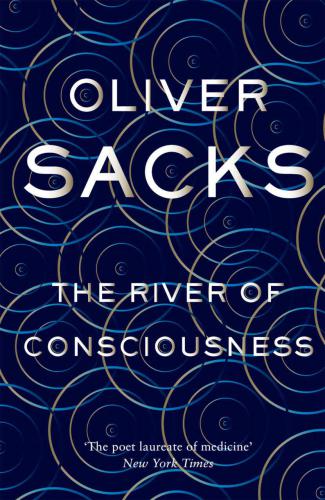
The River of Consciousness
کتاب های مرتبط
- اطلاعات
- نقد و بررسی
- دیدگاه کاربران
نقد و بررسی

May 1, 2017
One of two books distinguished scientist and best-selling author Sacks was working on at his death in 2015, this essay collection grapples with the key ideas of evolution, creativity, time, memory, consciousness, and experience. Given the sheer range of his knowledge, the connections he makes here are bound to shimmer.
Copyright 2017 Library Journal, LLC Used with permission.

August 15, 2017
Fans of the late neurologist have another chance to enjoy this erudite, compassionate storyteller, essayist, and memoirist in what may be his final work.This collection of 10 essays, some of which appeared previously in the New York Review of Books, was assembled by three colleagues from an outline provided by Sacks (Gratitude, 2015, etc.) two weeks before his death in 2015. Here, the author explores evolution, time, memory and forgetting, experience, creativity, and consciousness. As his colleagues note, Sacks "interrogates the nature not only of human experience but of all life (including botanical life)." Readers will see how Darwin's botanical work provided the strongest evidence for evolution and natural selection, the different ways in which time is perceived and experienced, and the fallibility of memory (explored in a fascinating piece on cryptomnesia, or unconscious plagiarism). The essay on misheard words, a real problem for the aging Sacks, is the shortest entry and also the funniest. The most speculative is "Scotoma," a neurological term for a disconnect in perception, which Sacks uses to refer to the neglect or oversight of an idea proposed or a discovery made before its time. This gives the author the chance to explore how the history of science might have been different. The longest, densest, and most technically demanding is the title essay, "The River of Consciousness," in which Sacks examines what neuroscientists have begun to learn about the neural basis of consciousness, from relatively simple mechanisms such as perception to more complex issues such as memory, imagery, and reflection. Interestingly, the collection can be seen as a subtle reminder of this polymath's previous works, for references to a number of these appear throughout the text and in footnotes. A collection of dissimilar pieces that reveal the scope of the author's interests--sometimes challenging, always rewarding.
COPYRIGHT(2017) Kirkus Reviews, ALL RIGHTS RESERVED.

Starred review from September 25, 2017
Acclaimed neurologist Sacks (1933–2015) demonstrates the range of his knowledge of evolution, botany, chemistry, medicine, neuroscience, and the arts in this collection of 10 essays he was working on before his death in 2015. The book is a tribute to his appreciation of all that’s beautifully complex in humans. In “Darwin and the Meaning of Flowers,” Sacks examines Darwin’s late-career studies of plants and worms, writing of Darwin’s belief that natural beauty “always reflected function and adaptation at work.” In “Speed,” he lauds William James for his exploration of the perception of time and how it was altered “by the effects of certain drugs.” Sacks also lends his own perspective on the perception of time, gleaned from working with patients with “disorders of neural speed,” which he documented in 1973’s Awakenings. One of the most moving pieces, “The Fallibility of Memory,” argues that humans are “landed with memories which have fallibilities, frailties, and imperfections—but also great flexibility and creativity.” Sacks pays homage to Freud in “Mishearings,” asserting that Freudian slips are more than expressions of repressed feelings: “They reflect, to some extent, one’s own interests and experiences.” Sacks also writes about his own cancer in “A General Feeling of Disorder” and how a respite from sickness filled him with gratitude. Readers will feel a similar sense of gratitude for the extraordinary work that Sacks left behind.

September 1, 2017
Revered neurologist Sacks specified the contents of this collection shortly before his death, and he seems to have named it thematically (though it includes an essay with the same title). This is a book about acting purposefully toward an end, a primary function of evolution and of consciousness. It opens with an appreciation of Darwin's botanical works, which, though sans theory, illustrate purposiveness continually. Other essays' titles seem more on-topic but teem with surprises; the one entitled Sentience is more particularly named by its brow-raising subtitle, The Mental Lives of Plants and Worms. Freud, explorer of the subconscious, seems a natural enough subject; the surprise this time is that Sacks appraises the Viennese clinician's purely neurological work. Such revealing of lesser-known aspects of a subject is Sacks' great didactic and aesthetic strength. He engages and deepens our attention through the historic and personal particulars with which he argues his points about what, say, memory, or forgetting, or creativity, or A General Feeling of Disorder, involves organismically. So doing, he has made permanent contributions to literature.(Reprinted with permission of Booklist, copyright 2017, American Library Association.)

























دیدگاه کاربران